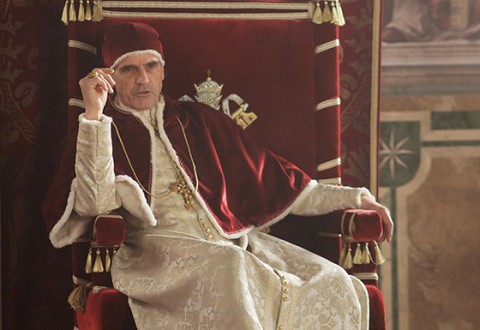Papal indulgence

Alexander VI was the worst of the Borgia popes, against whom the Reformation was right to protest. He’s the subject of the Showtime series The Borgias. There were three popes from the Borgia family from the 15th to the 17th centuries, and, of the three, Alexander VI was the most infamous: he was accused of simony, lechery, and adultery—which gives the English actor Jeremy Irons some material to work with. If you ever find yourself wondering how Martin Luther or John Calvin could imagine the pope as the Antichrist, give this series a gander.
Steven Spielberg was the one who suggested that Neil Jordan turn his two-hour biopic into a cable series. He did, brilliantly, and the show’s cancellation after three seasons left fans clamoring for more. Among cable TV dramas, The Borgias is much like The Tudors (neither one is big on historical accuracy) and Game of Thrones (which, though not based on real events, also has lots of naked people and violent deaths).
The Borgias compels us with the shock that this man—with a common-law wife, three grown children, a mistress, and backup mistresses whose bastard children can hold out against incest for only so long—is actually the pope at a time when the papacy was more powerful than it ever was or would be. The bishop of Rome crowned kings, and he was one, fighting for and against them in a dazzling variety of tawdry military alliances. All the Christian world had to pay homage to him—in this case, in devotion and gold. He had to pay the same to other cardinals to buy his election—he had abbeys and bishoprics to offer them. He was more like the godfather than the holy father.




